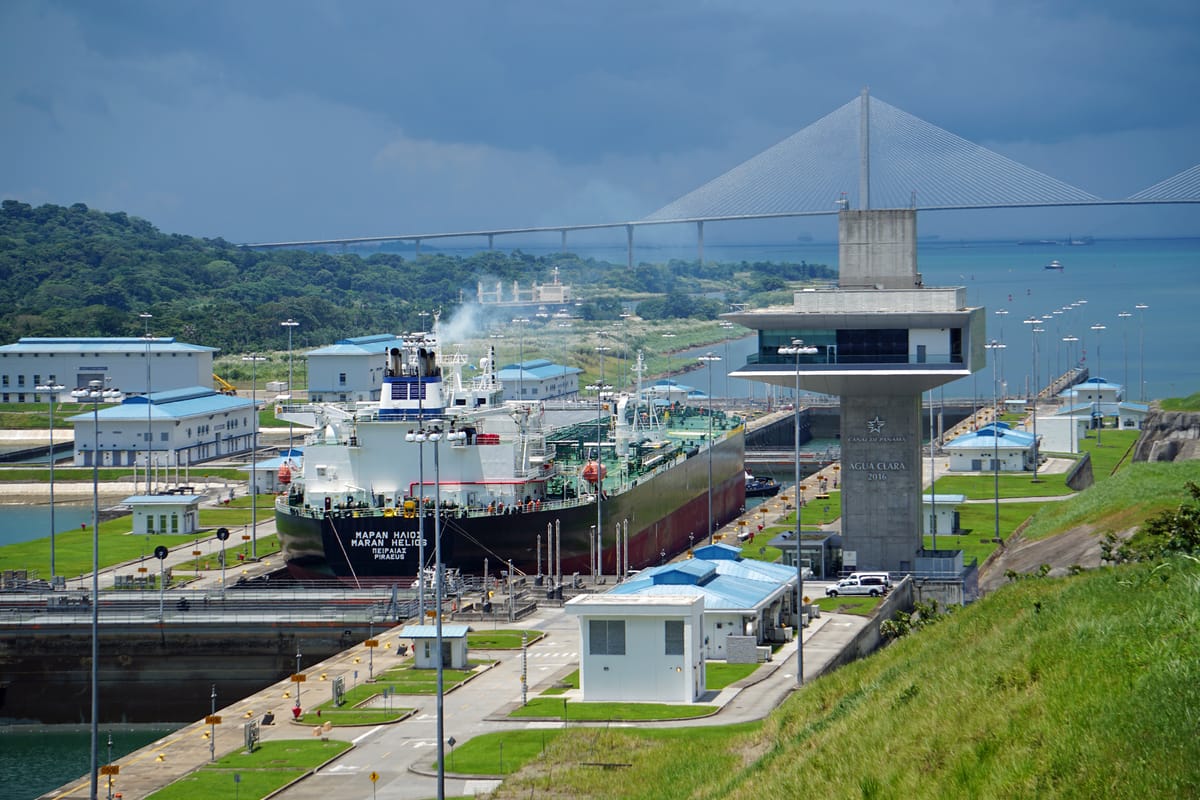

The Historical Context and Current Status of the Panama Canal
The Panama Canal, opened in 1914, is a monumental feat of engineering that has been pivotal in global maritime transportation. Initially, the US acquired the rights to build and operate the canal through the Hay-Bunau-Varilla Treaty in 1903. However, by the 1970s, increasing administrative costs and growing Panamanian resentment led to negotiations between the US and Panama. The Carter administration and Panamanian leader Omar Torrijos signed the Panama Canal Treaties in 1977, which included the Permanent Neutrality Treaty and the Panama Canal Treaty. These treaties ensured the canal's neutrality and secure operation while transferring ownership to Panama by December 31, 1999.
Economic Significance of the Panama Canal to the US
The Panama Canal is a cornerstone of global commerce, facilitating 6% of global maritime trade. Approximately 40% of US container traffic relies on this route annually, making the US the canal’s largest user. The canal drastically reduces transit times between the Pacific and Atlantic Oceans, enhancing US trade competitiveness and playing a critical role in global supply chains. By saving time and fuel costs, the canal supports the movement of various commodities, including dry bulk, containers, and perishable goods.
Strategic and National Security Implications
The Panama Canal is not just an economic asset but also a vital strategic and national security asset for the US. Its secure, efficient, and reliable operation is crucial for US defense capabilities, diplomatic relations, and logistical resilience. The canal’s neutrality, ensured by the Permanent Neutrality Treaty, is essential for maintaining global supply chain stability and international commerce. However, evolving geopolitical dynamics, including China’s increasing regional influence, highlight the need for a nuanced approach to ensure the canal’s continued neutrality and operational efficiency.
Geopolitical Dynamics and US Policy Concerns
Recent geopolitical shifts have brought the Panama Canal back into the spotlight. Concerns raised by former President Donald Trump about the canal’s management and strategic importance underscore the ongoing debate about US control. Navigating the interplay between American strategic interests, Panamanian sovereignty, and other regional powers is crucial. Maintaining the canal’s operational efficiency and neutrality is essential for safeguarding global trade and US national security interests.
Public opinion on the transfer of the Panama Canal has evolved over time. In the late 1970s, about half of Americans opposed ceding control to Panama. However, by the time ownership was transferred in 1999, public opinion had shifted, with about half of Americans in favor. This shift reflects a broader understanding of the canal’s importance and the diplomatic efforts to ensure its secure operation.
Reconsidering US control over the Panama Canal could offer several benefits. It would allow the US to more directly influence the canal’s management, ensuring it aligns with American economic and strategic interests. This could also enhance the US’s ability to navigate geopolitical tensions and protect its national security. However, such a move would need careful consideration of Panamanian sovereignty and the diplomatic implications of reversing the 1977 treaties.
Panama Canal is a Strategic Asset
The Panama Canal remains a critical asset for global maritime trade and US strategic interests. Its economic significance, strategic importance, and the evolving geopolitical landscape make a compelling case for the US to reconsider its control over the canal. While this would involve intricate diplomatic and national security considerations, the potential benefits in terms of enhanced trade competitiveness, national security, and geopolitical stability are significant. As global trade routes continue to evolve, the US must navigate these complexities to ensure the continued neutrality and operational efficiency of the Panama Canal.
Dues are $12 per year. Member benefits:
✅ Ad-Free Website Viewing
✅ Advocacy for Republican Seniors
✅ 120+ Senior Discounts
✅ Member Only Newsletters